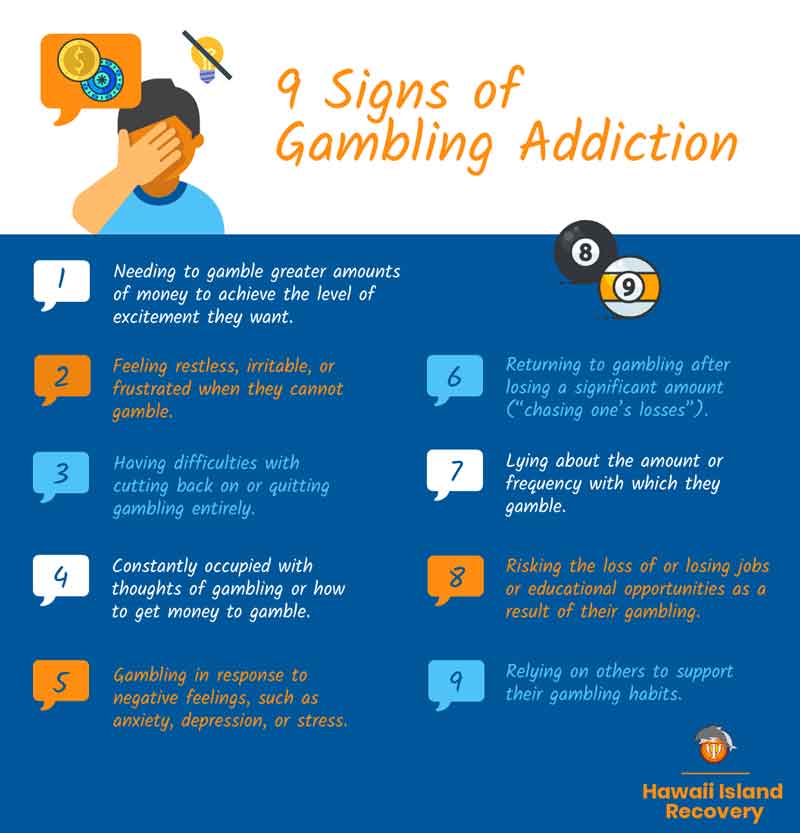Online betting problems can happen to anyone from any walk of life. Your gambling goes from a fun, harmless diversion to an unhealthy obsession with serious consequences. Whether you bet on sports, scratch cards, roulette, poker, or slots in a casino, at the track, or online, a gambling problem can strain your relationships, interfere with work, and lead to financial disaster. You may even do things you never thought you would, like running up huge debts or even stealing money to gamble. Roughly 60 million Nigerians between the ages of 18 and 40 are involved in active sports betting. On average, these punters spend around 3,000 Naira every day on bets.
Betting addiction also known as pathological gambling, compulsive gambling or gambling disorder is an impulse-control disorder. If you’re a compulsive gambler, you can’t control the impulse to gamble, even when it has negative consequences for you or your loved ones. You’ll gamble whether you’re up or down, broke or flush, and you’ll keep gambling regardless of the consequences even when you know that the odds are against you or you can’t afford to lose.
Of course, you can also have a betting problem without being totally out of control. Problem gambling is any gambling behavior that disrupts your life. If you’re preoccupied with betting, spending more and more time and money on it, chasing losses, or gambling despite serious consequences in your life, you have a gambling problem. A gambling addiction or problem is often associated with other behavior or mood disorders. Many problem gamblers also suffer with substance abuse issues, unmanaged ADHD, stress, depression, anxiety, or bipolar disorder. To overcome your gambling problems, you’ll also need to address these and any other underlying causes as well.
If you are addicted to Bet9ja or other betting sites it may feel like you’re powerless to stop gambling, there are plenty of things you can do to overcome the problem, repair your relationships and finances, and finally regain control of your life. The first step is to separate the myths from the facts about gambling problems:
Myths & Facts about Gambling Problems
Myth: You have to gamble every day to be a problem gambler.
Fact: A problem gambler may gamble frequently or infrequently. Gambling is a problem if it causes problems.
Myth: Problem gambling is not really a problem if the gambler can afford it.
Fact: Problems caused by excessive gambling are not just financial. Too much time spent on gambling can also lead to relationship and legal problems, job loss, mental health problems including depression and anxiety, and even suicide.
Myth: Having a gambling problem is just a case of being weak-willed, irresponsible, or unintelligent.
Fact: Gambling problems affect people of all levels of intelligence and all backgrounds. Previously responsible and strong-willed people are just as likely to develop a gambling problem as anyone else.
Myth: Partners of problem gamblers often drive their loved ones to gamble.
Fact: Problem gamblers often try to rationalize their behavior. Blaming others is one way to avoid taking responsibility for their actions, including what is needed to overcome the problem.
Myth: If a problem gambler builds up a debt, you should help them take care of it.
Fact: Quick fix solutions may appear to be the right thing to do. However, bailing the gambler out of debt may actually make matters worse by enabling their gambling problems to continue.
Gambling Addiction Signs and Symptoms
Gambling addiction is sometimes referred to as a “hidden illness” because there are no obvious physical signs or symptoms like there are in drug or alcohol addiction. Problem gamblers also typically deny or minimize the problem even to themselves. However, you may have a gambling problem if you:
Feel the need to be secretive about your gambling. You might gamble in secret or lie about how much you gamble, feeling others won’t understand or that you will surprise them with a big win.
Have trouble controlling your gambling. Once you start gambling, can you walk away? Or are you compelled to gamble until you’ve spent your last dollar, upping your bets in a bid to win lost money back?
Gamble even when you don’t have the money. You may gamble until you’ve spent your last dollar, and then move on to money you don’t have—money to pay bills, credit cards, or things for your children. You may feel pushed to borrow, sell, or even steal things for gambling money.
Have family and friends worried about you. Denial keeps problem gambling going. If friends and family are worried, listen to them carefully. It’s not a sign of weakness to ask for help. Many older gamblers are reluctant to reach out to their adult children if they’ve gambled away their inheritance, but it’s never too late to make changes for the better.
How to Stop Gambling For Good
For many problem gamblers, it’s not quitting gambling that’s the biggest challenge, but rather staying in recovery—making a permanent commitment to stay away from gambling. The Internet has made online betting far more accessible and, therefore, harder for recovering addicts to avoid relapse. Online bookmakers are open all day, every day for anyone with a smartphone or access to a computer. But maintaining recovery from gambling addiction or problem gambling is still possible if you surround yourself with people to whom you’re accountable, avoid tempting environments and websites, give up control of your finances (at least at first), and find healthier activities to replace gambling in your life.
Making healthier choices
- One way to stop gambling is to remove the elements necessary for gambling to occur in your life and replace them with healthier choices. The four elements needed for gambling to continue are:
- A decision: For gambling to happen, you need to make the decision to gamble. If you have an urge: stop what you are doing and call someone, think about the consequences of your actions, tell yourself to stop thinking about gambling, and find something else to do immediately.
- Money: Gambling cannot occur without money. Get rid of your credit cards, let someone else be in charge of your money, have the bank make automatic payments for you, close online betting accounts, and keep only a limited amount of cash on you.
- Time: Even online gambling cannot occur if you don’t have the time. Schedule enjoyable recreational time for yourself that has nothing to do with gambling. If you’re gambling on your smartphone, find other ways to fill the quiet moments during your day.
- A game: Without a game or activity to bet on there is no opportunity to gamble. Don’t put yourself in tempting environments. Tell gambling establishments you frequent that you have a gambling problem and ask them to restrict you from entering. Remove gambling apps and block gambling sites on your smartphone and computer.
Finding alternatives to gambling
- Maintaining recovery from gambling addiction depends a lot on finding alternative behaviors you can substitute for gambling.
“Three ways to get wrecked financially: technicians, gambling and ladies. The most sure way is with technicians, the fastest is by gambling but the most exciting way is by ladies” -Georges Pomidou







